The sludge is clearing after two years in Bangladesh camps
Trudging through muddy tracks in the monsoon rains to relief distribution sites, dilapidated bamboo retaining walls hold up precarious slopes of clay.
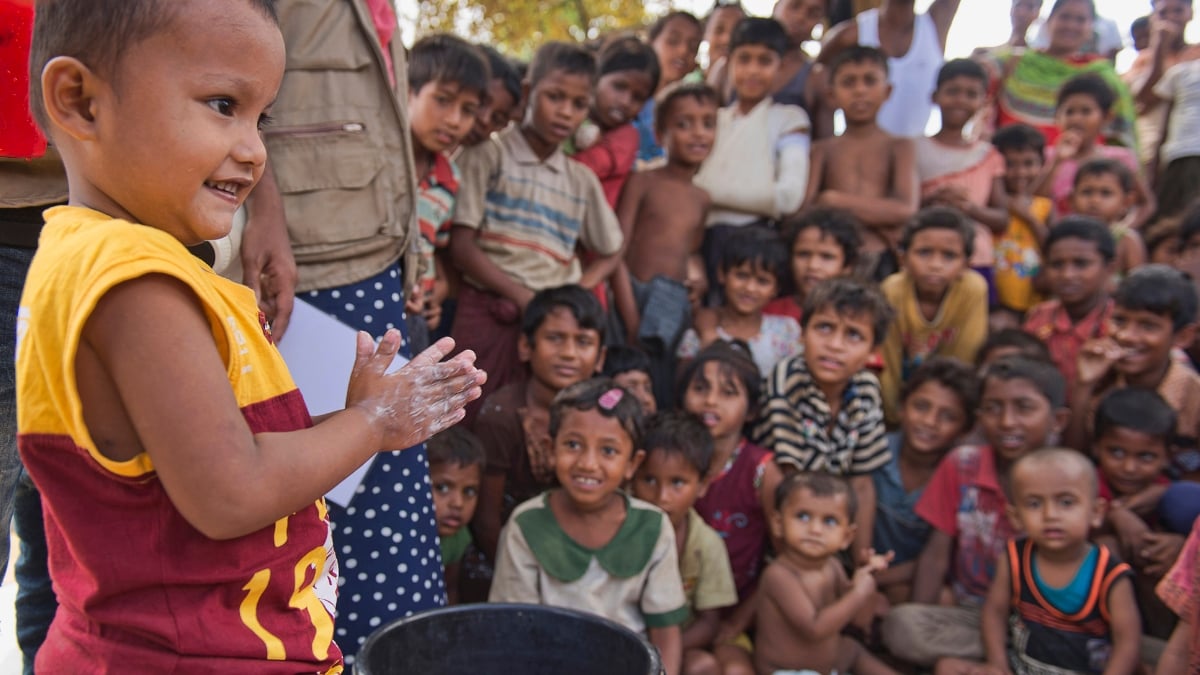
Footpaths of ripped sandbags in the sludge. Small plastic and bamboo shelters litter these hills to the horizon. Crammed like sardines in a tin.
Life in the world’s biggest refugee settlement is harsh. No one should live like this. Yet everywhere I look, people here are making the most of their lives and the little they have.
It's two years since one of the biggest mass exodus ever in our region. More than 750,000 people from Rakhine State in Myanmar risked their lives to trek through dense jungle over the border into existing Bangladesh camps. A pop-up city of a million in a matter of weeks.
"This refugee mega-camp is equivalent to the third largest city in Bangladesh, perched on a narrow peninsula between the Bay of Bengal and the picturesque Naf River bordering Myanmar. It has one of the most dense populations in the world, 250 times the density of Perth."
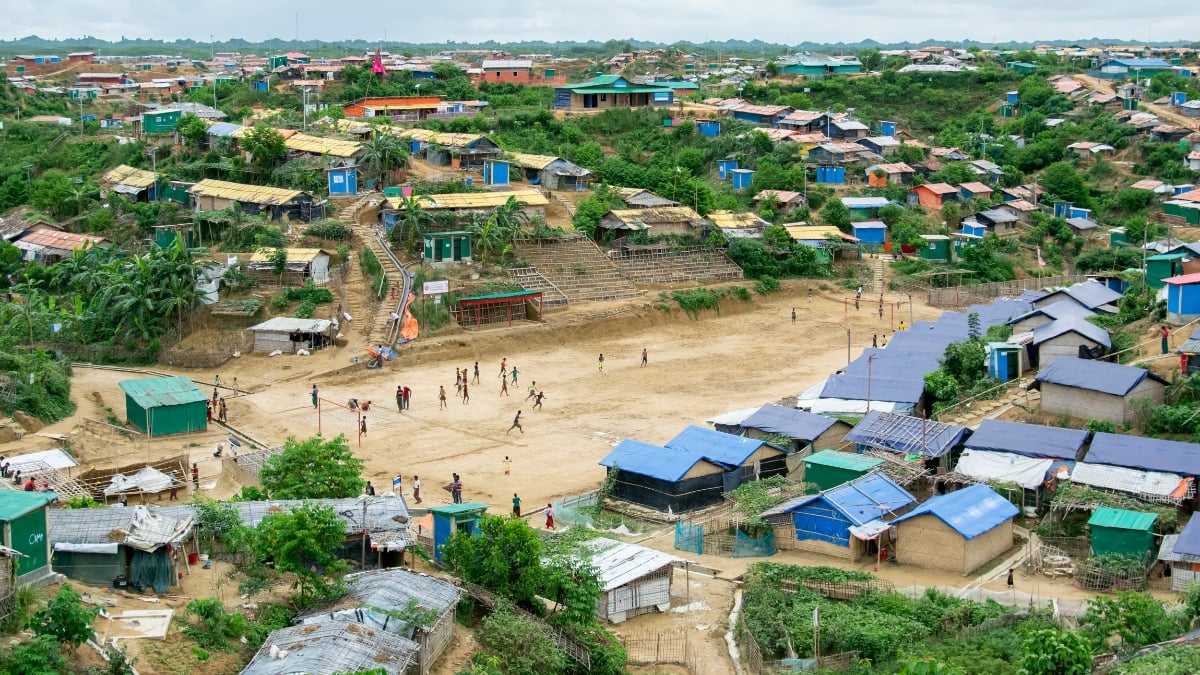
In August 2017, an immense river of humanity arrived malnourished and fearful, fleeing eruptions of violence and burning villages. The trauma is still visible in so many faces. Everywhere I turn, there is also strength in new lives carved in these deforested hills.
Children play, older women share a joke as they sell oil and groceries by the side of tracks. The chorus of schoolchildren and teachers reciting stories carries on the wind as well as smoke from wood stoves.
Bangladesh is one of the poorest countries in the world, with an average weekly wage of just $23; more than 50 times less than average wages here in Australia. Yet the people of Bangladesh have been incredibly generous offering refuge and unending support to people who lost everything, often arriving with just the clothes they wore. How long can this go on?
As the world focusses on other massive crises from Syria to South Sudan, will the displaced people of Rakhine continue to feel ignored, stateless and fobbed off by the international community?
"I have seen conditions improve out of sight over the last 20 months. There was just one main Red Cross hospital. Now health clinics are located throughout all camps. Most can access daily clean water. It remains a massive challenge with daily threat of deadly disease including diarrhoea."

Alongside teams of committed local volunteers and other agencies, we have built centralised chlorinated water distribution systems. Where toilet waste flowed down hillsides, faecal sludge treatment plants are in operation improving hygiene in leaps and bounds.
Graded roads have replaced muddy tracks. Everyone has been vaccinated to prevent deadly outbreaks of cholera. Hundreds of millions of dollars have been invested in vital infrastructure, from clean water systems to safe sewage disposal. Our teams have shored up landslide-prone hillsides and homes faced with cyclones and monsoon floods.
The biggest challenge for the Government of Bangladesh and all agencies working in the camps is to ensure the upkeep of these essential services.
Over the past year, there have been several attempts to encourage people to return home. Many would love to return to their villages if safety could be guaranteed.
There must be a political solution to this crisis, as many are unwilling to return home to Rakhine State without guarantee of citizenship status. There is no end in sight for the people here. It is the responsibility of international aid organisations and governments to find medium and long-term solutions.
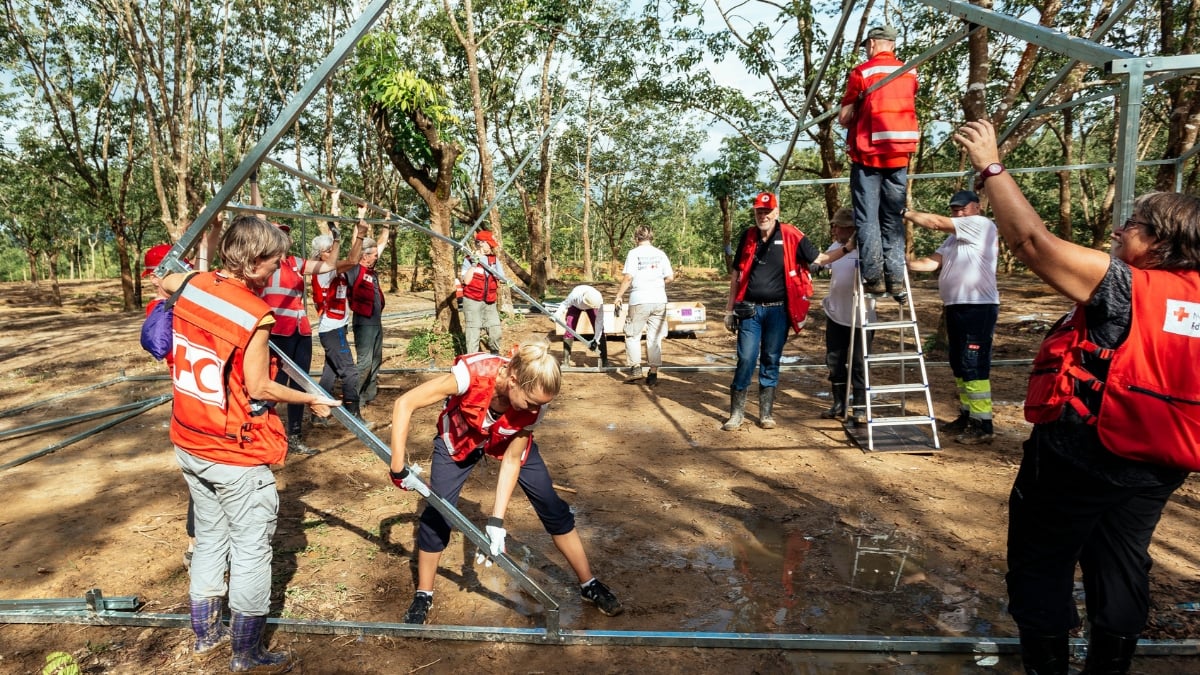
People here are running makeshift schools and they run bustling markets, shops and other trade. There must be investment in formal education, skills training, jobs and livelihoods that allow a more dignified existence for the people of Rakhine.
"I am in awe of the strength of the people here. No Australians I know would live like this. Earlier, I saw joy in the face of a Bangladesh Red Crescent volunteer, Jomila, as she helped others in the camps. Jomila trains women and people with a disability how to sew reusable menstrual hygiene pads and clothes so they can make a living and help their families survive. Every little bit means the world here."
Jomila’s workshop is a respite from my less glamorous daily grind, working with teams to collect sewage by the container load. Dressed in safety gear, every one of these volunteers deserves recognition for their humanitarian work preventing disease and making their communities liveable.
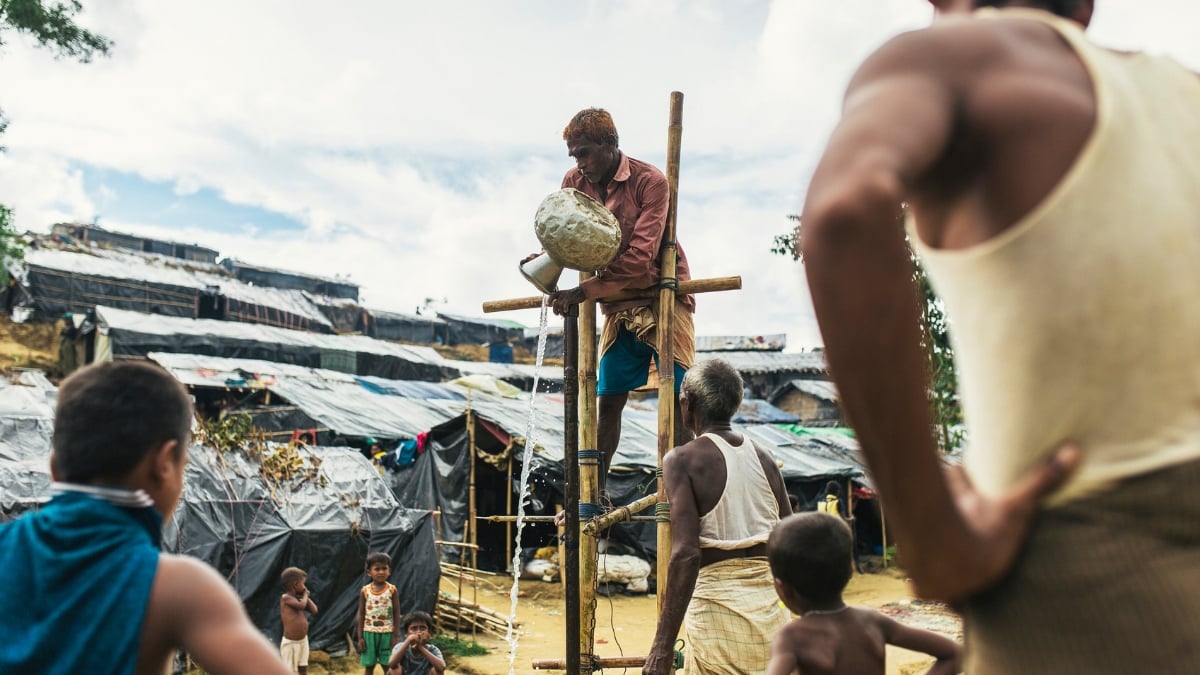
Collections like this took place in Australia 100 years ago. All day, every day, our dedicated teams carry sludge and wastewater to treatment plants, before it is discharged safely into the environment.
In Australia, we take so much for granted. Our sewage systems, water from the tap. Quality medical care, schools and a decent place to call home. People here in the refugee camps of Bangladesh deserve at least the basics to live a decent life.
Story by water and sanitation engineer and aid worker, Samuel Cleary, is from Perth and he has been working in the camps with the International Federation of Red Cross and Red Crescent Societies for 20 months.
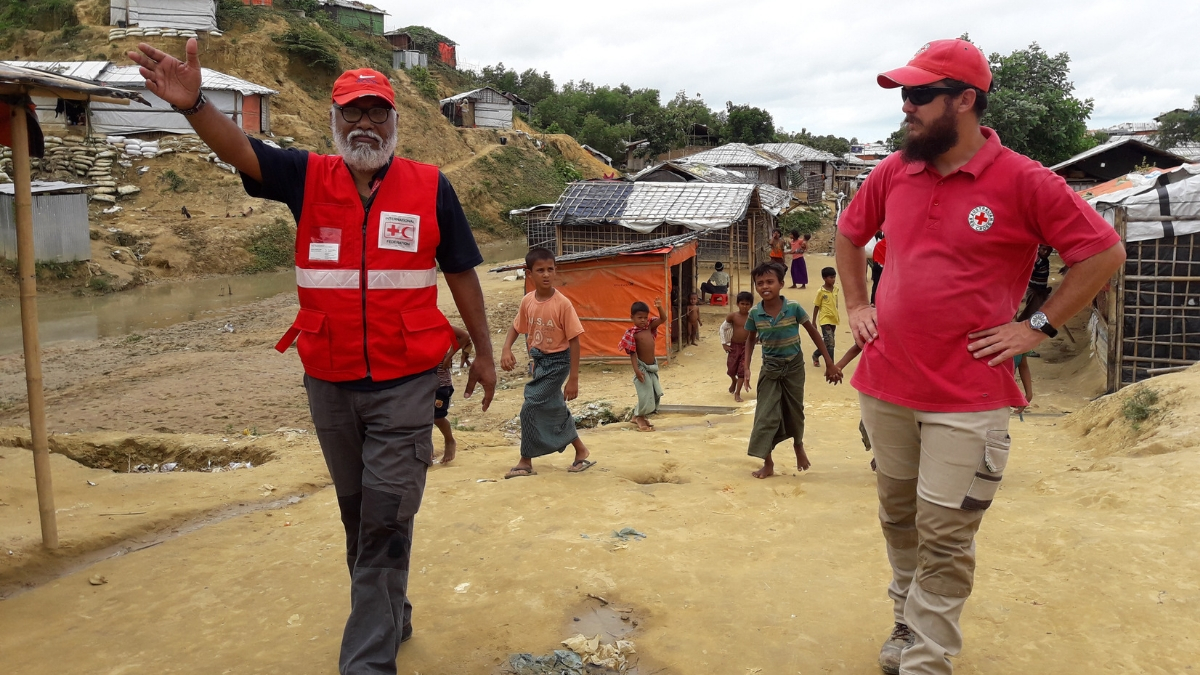
Charity donations of $2 or more to Australian Red Cross may be tax deductible in Australia. Site protected by Google Invisible reCAPTCHA. © Australian Red Cross 2024. ABN 50 169 561 394